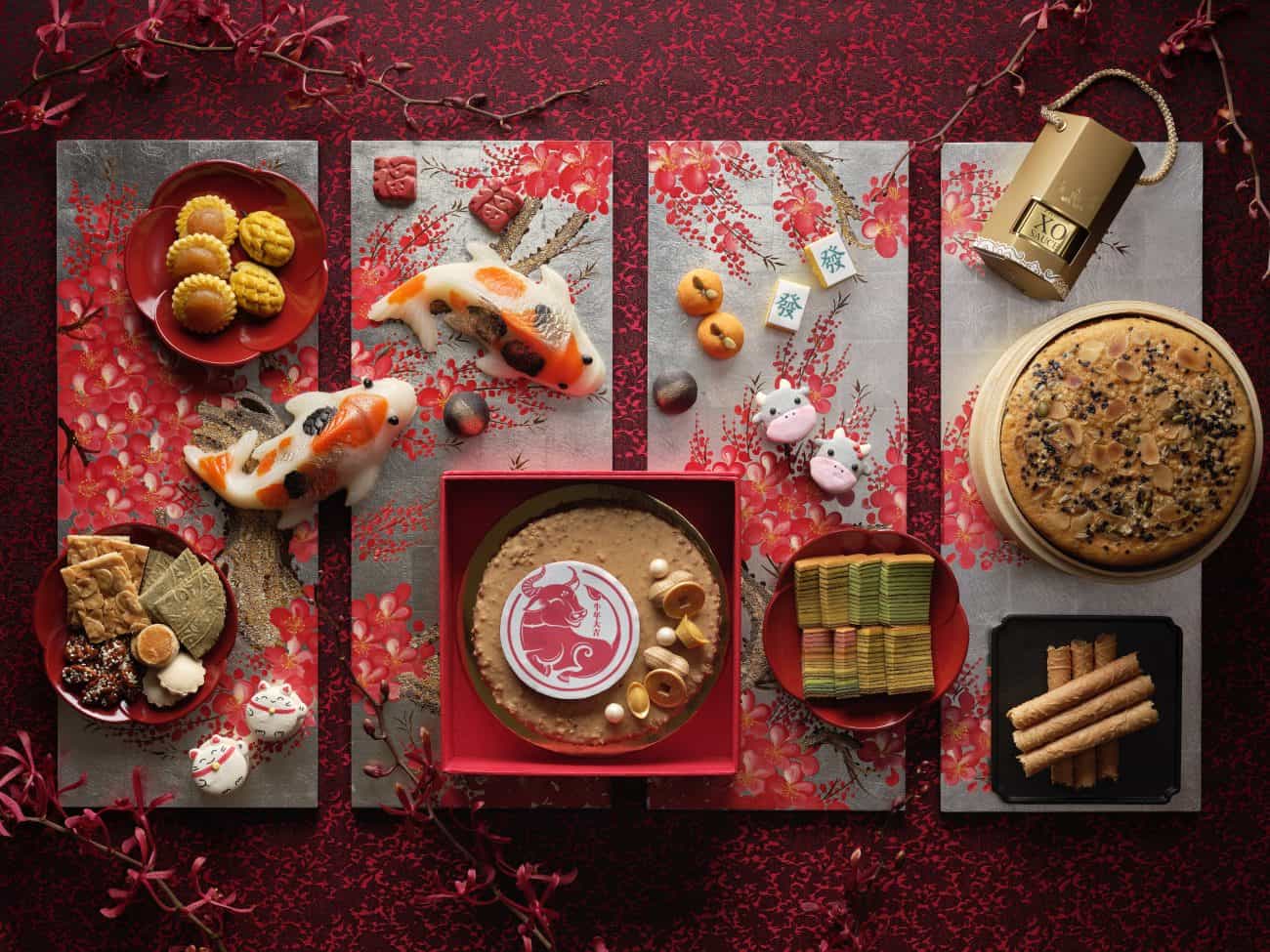
Chinese New Year Desserts You Can Try
The legend of the Spring Festival says that New Year’s Eve was the day when the monster Nian would come and terrorize the villages. Therefore people would hide in their homes, preparing a feast for their ancestors and gods to gain some luck from them. Desserts are made to give blessings for the next year. Both the names and looks are symbols of wishes for prosperity, happiness and auspiciousness. Though every region and even family has different customs, below you can find the most famous desserts.
Rice Cake 年糕 (nián gāo)
This dessert is something you offer your family members in order to wish them success in their career and good health in the new year. Rice Cake was already popular during the Wei and Jin dynasties (220-420 A.D). After more than two thousand years of development, there is a big difference between the northern regions and the southern regions. In the north, people prefer to prepare the rice cake as dessert while in the south it is usually stir-fried with meat and vegetables for a savory dish. You can easily buy it from the supermarket or perhaps make it by yourself.

Steamed Sponge Cake 发糕 (fā gāo)
The same as with the Rice Cake, the “gao” is still a wish for success. But the “fa” comes from the Chinese 发财 (Fā cái) which means to gain wealth and make a fortune. The Hakka people believe if the crack on the top of the sponge cake is bigger then the better luck it will bring. It is lightly sweetened, fluffy in appearance but dense. During the Chinese New Year, the cakes are usually dyed in bright colors, such as pink and green. You can find this dessert in Zhejiang, South China, Hong Kong, Macau and Taiwan.

Turnip Cake 萝卜糕 (luó bo gāo)
Turnip Cake is popular in southern China, especially in the Fujian and Guangdong provinces. In Chinese, “radish” (菜头 / cài tóu) has a similar pronunciation as “good luck and fortune” (好彩头). The main ingredient is shredded radish to which is added rice flour and other flavoring ingredients such as sausages, shiitake, dried shrimp, etc. To add even more flavoring, the cakes can be dipped in sauces. Some suggestions are soy sauce, kumquat jam and hot chili sauce. Although it is a common dim sum item in Cantonese restaurants you can eat it all year round, but giving it a try on Chinese New Year is a must.
Osmanthus Jelly 桂花糕 (guì huā gāo)
The name of the jelly is a pun, “桂 / Guì” a homophone for贵, which means noble. Also, in Chinese floriography osmanthus represents auspiciousness, friendship and success. Osmanthus jelly has more than 300 years of history. The three main ingredients are glutinous rice powder, fresh osmanthus petals and bits of crystal sugar. Crystal osmanthus jelly is a well-known Shanghainese dessert for the Spring Festival while Xianyang uses a special osmanthus jam.
Jujube Flower Cakes 枣花糕 (zǎo huā gāo)
Jujube (枣—zǎo) is a homophone of “early” (早). It is a wish for the couples to have children soon or a wish for your dream to come true. Regarding the shape, some people go for multi-tiered cakes, others mold the dough into a flower and simply press the fruit into the center like the petals. After steaming, the dough rises to a light spongey texture so you obtain a “bouquet” of jujube flowers.
Dragon’s Beard Candy 龙须酥 (lóng xū táng)
Dragon’s beard candy is a traditional Chinese confectionary similar to floss halva or Western cotton candy. It is often offered as a gift when you visit your friend or relative in Chinese New Year. Dragon’s Beard Candy dates back to the Han Dynasty in China. According to the legend, there was an Imperial Court chef who entertained the Emperor by showcasing the process of making the candy. This involved stretching a dough made of rice flour and sugar into small, thin strands. These strands resembled a dragon’s beard and were sticky enough to literally stick to your face easily. Hence, the candy was named Dragon’s Beard Candy.

The Expats Holidays staff wishes you a happy Chinese New Year of Tiger! Take care and be safe during your holiday season. If you have any travel issue or need any travel advice please send an email to info@expatsholidays.com, we are here to support you as always.
Leave a Reply:
You must be logged in to post a comment.






